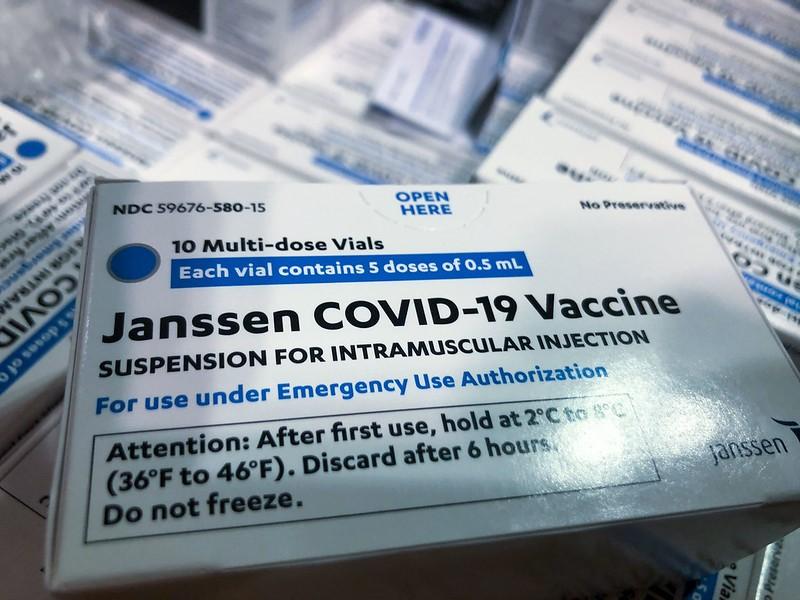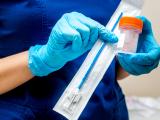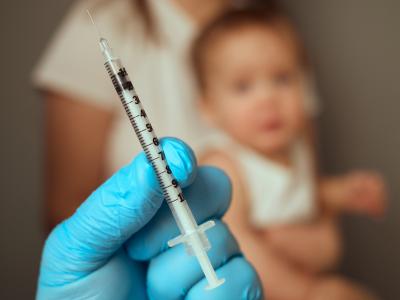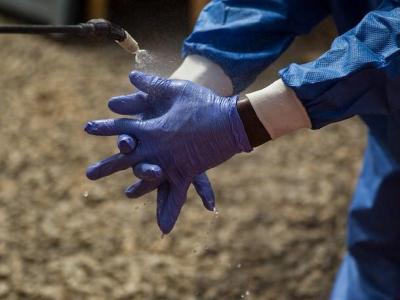The Johnson & Johnson (J&J) adenovirus-based COVID-19 vaccine is 74% effective in preventing SARS-CoV-2 infection even amid phases of high Alpha (B117) and Delta (B1617.2) variant circulation, according to the preliminary findings of a real-world US study yesterday in JAMA Network Open.
The comparative-effectiveness study, led by researchers from nference, a Massachusetts software company affiliated with Janssen, maker of the J&J vaccine, involved mining the Mayo Clinic electronic health records (EHRs) of 8,889 vaccinated and 88,898 matched unvaccinated adults living in 1 of 15 states from Feb 27 to Jul 22, 2021.
The EHRs were from the multistate Mayo Clinic Health System. Men made up roughly half of both groups of patients, with a mean age of 52.4 years in the vaccinated group and 51.7 in the unvaccinated group.
Participants had one or more COVID-19 tests at Mayo Clinic during the study period and lived in an area in which at least 10 patients had received the J&J vaccine. Median follow-up was 111 days.
Almost 4-fold reduction in infections
Sixty of 8,889 vaccinated patients (0.7%) and 2,236 of 88,898 unvaccinated patients (2.5%) tested positive for COVID-19. The incidence rate ratio in the group vaccinated with the single-dose J&J COVID-19 vaccine versus the unvaccinated group was 0.26 (95% confidence interval [CI], 0.20 to 0.34), for a vaccine effectiveness of 73.6% (95% CI, 65.9% to 79.9%) and a 3.73-fold reduction in infections.
When the researchers analyzed the number of hospitalizations, intensive care unit (ICU) admissions, and deaths among the 60 vaccinated and 2,236 unvaccinated patients who tested positive for SARS-CoV-2, a composite outcome showed 67% vaccine protection against severe COVID-19 (odds ratio [OR], 0.33 [95% CI, 0.19 to 0.65]).
A subgroup analysis showed lower odds of hospital admission (OR, 0.32 [95% CI, 0.18 to 0.66]) and ICU admission (OR, 0.00 [95% CI, 0.00 to 1.43]), but not death (OR, 0.83 [95% CI, 0.26 to 5.20]) among the vaccinated.
One vaccinated patient and 12 in the unvaccinated group died. The researchers said that, with only 60 patients in the vaccinated group testing positive for COVID-19, the study was underpowered to definitely measure protection against death.
Findings align with those of clinical trials
"This study’s findings are consistent with the clinical trial-reported efficacy of Ad26.COV2.S [the J&J vaccine] and the first retrospective analysis, suggesting that the vaccine is effective at reducing SARS-CoV-2 infection, even with the spread of variants such as Alpha or Delta that were not present in the original studies, and reaffirm the urgent need to continue mass vaccination efforts globally," the authors concluded.
The study is the first to use EHR data in a propensity score-matched retrospective analysis of J&J vaccine effectiveness, according to the researchers.
"Implementation of this framework will allow us to track in real time how the effectiveness of this 1-shot vaccine continues to evolve over the coming weeks and months," they wrote. "This information is particularly important in the context of the emergence of variants that could potentially escape vaccine-induced immunity."
The Food and Drug Administration issued emergency use authorization for the J&J vaccine on Feb 27, 2021. Since then, more than 21 million doses have been administered in the United States, the researchers noted.



















